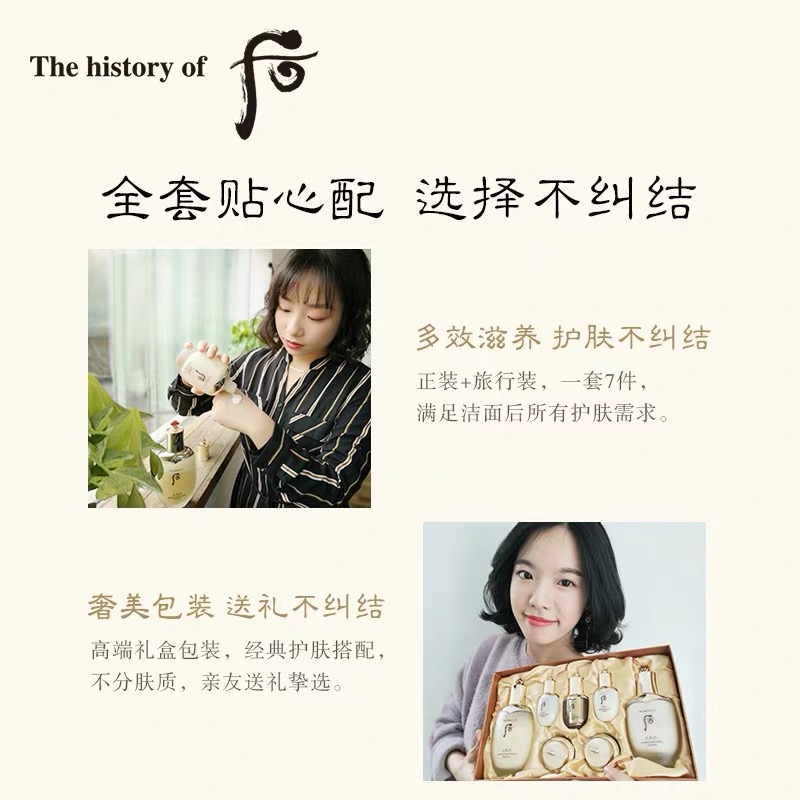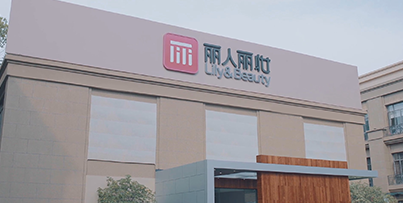- 2021-05-13
- 阅读量:2238
- 来源|CBO
- 作者|Wu Sixin
On April 28 Lily&Beauty officially released the 2021 Q1 financial report. In Q1 the company recorded total revenue of about RMB 755 million, increasing by 15.51% year over year; net profit was about RMB 44.5 million, increasing by 5.01% year over year. The growth in both revenue and profit was a good start for the whole year.
At that time he had just started relaxing from the busy marketing of the past year. His daily tasks were to discuss next year's plans with the management, optimize the data model to predict nextyear's sales, urge employees to learn and receive training, and read books.
Huang Tao said that in fact he spends most of his time and energy on the last two tasks, as for Lily&Beauty's team the biggest pressure comes from learning instead of performance.
In January a 24-hour self-service book lending cabinet appeared on the first floor of Lily&Beauty's office building on the path that the employees must take to get to their workstations. Among the books management guides such as "The 7 Habits of Highly Effective People" account for one-third of the books, and the rest are professional books on data technology and the history of the beauty industry.
In Huang Tao's general manager office this learning atmosphere peaks.
In addition to the desk and the long conference table, there is a mahogany bookcase which occupies almost the entire wall. Every time he reads a book on management, philosophy, history, or beauty, he thinks more about business.
A training course summary on the photo wall of Lily&Beauty says: "In VUCA society, we need to redefine our project management capabilities. We must have the logic of finding and solving problems, and the ability to transfer knowledge. As a senior, middle or junior manager, we should know that there are ways to advance and achieve something, and guidance and skills to mobilize people.

Huang Tao, with a buzz cut and in an outfit that he claims to be "no more than RMB 100", has clear logic in his speech, and is concise and to the point. As an alumnus who graduated from Tsinghua University with a master and a bachelor degree in 1995, he undoubtedly possesses the top learning and execution abilities, and he also makes full use of this advantage to shape Lily&Beauty into an intelligent machine that continuously evolves.

The 2021 Q1 financial report of Lily&Beauty released today (April 28) represents a good start for the whole year: In Q1,the company recorded total revenue of about RMB 755 million, increasing by 15.51% year over year; net profit was about RMB 44.5 million, increasing by 5.01% year over year.
Not only that, in addition the Q1 report of Lily&Beauty also showed that as at March 31 of this year, the company operated a total of 60 brands in 103 stores. In Q1 it added 29 stores and discontinued 16 stores. Among these, it added 3 stores in Pinduoduo and 4 in Douyin (TikTok)- decreased brand concentration and richer channels are enough to free the capital market from stereotypes.
Driven by good news, the stock price of Lily&Beauty continued to rise and closed at RMB 36.59 per share on April 28. With the total market value of RMB 14.696 billion Lily&Beauty is the beauty e-commerce leader in the A share market.

01
A successful year for Lily&Beauty,
If there is a bumper or lean year for business, 2020 is definitely the bumper year of Lily&Beauty:
The first most important event was the successful listing. On September 29 Lily&Beauty (605136) was officially listed on the main board of the Shanghai Stock Exchange and became the first listed service provider in the online beauty retail industry. The company is at a new starting point.
Second, the company had an extraordinary performance at the three major shopping festivals.
Under the backdrop of the sudden epidemic at the beginning of the year, offline cosmetics retail was almost paralyzed and consumer demand for cosmetics soared online. Lily&Beauty faced the "peak test" on March 8. Through timely adjustment of sales targets and pace and distribution of pressure, the sales growth of many brand flagship stores doubled, and the growth of some stores even reached 800% and 1,500%.
On June 18 in Q2 the Gross Merchandise Volume (GMV) of Sulwhasoo, Whoo, Freeplus and other brands exceeded RMB 100 million, the GMV of OHUI and Miseen Scene increased by more than 10 times, and that of flagship stores of multiple brands increased by more than100%.
In Q4 Lily&Beauty successfully closed on the Double Eleven festival with sales of over RMB 3 billion. Additionally, Whoo, Sulwhasoo, Laneige, Freeplus, Erno Laszlo, Avène, and Schwarzkopf have joined 100M Club.
According to the data of Shengyicanmou, as at 2021 Q1 OHUI, Allie, Whoo, Freeplus, Erno Laszlo, and many brands that cooperate with Lily&Beauty have shown rapid growth in GMV.

Having said all that, how does Huang Tao help the brand to do business?
In short, the core competence of Lily&Beauty is to use digital capabilities to improve marketing efficiency and help brands find consumers who are suitable for them more quickly and accurately through various methods.
Everyone will understand the above the following three data points.
Firstly, during 2020 Double Eleven festival Lily&Beauty could accurately predict the sales, even with billions of retail sales. In other words, half of the year before the Double Eleven festival Lily&Beauty could tell the brands how to stock up based on the forecast data, and there was a high probability that these products could be sold.
Second, the marketing pace of Lily&Beauty and the agent brand is generally subject to two rounds of matching: in the first round Lily&Beauty will give the brand the data estimated from the data model; in the second round the brand will follow up the production capacity and adjust the marketing plan based on the data. This means that the data model of Lily&Beauty has begun to guide the brand supply chain in reverse.
Third, since its official establishment in 2010 Lily&Beauty has accumulated consumer data for ten years, covering various sub-categories in the cosmetics industry.
Precise prediction of sales volume and precision marketing are extremely important for imported beauty brands in the post-epidemic environment. In the past, for the stocks for the Double Eleven festival if a store had millions of products left, it could return and exchange such products with the brand. However, international shipping by air and sea were not normal this year, so accurately forecasting sales and helping brands to sell products directly determined the profit this year.
Japan's Allie sunscreen, which has just entered China, is an example of expanding sales through Lily&Beauty's data forecasts.
According to the data, Lily&Beauty made 3 judgments on Allie: First, Allie has a unique sunscreen technology which presses the zinc dioxide in physical sunscreen into thin sheets to achieve the same sunscreen effect with a small amount, making users feel it is a light and thin application. Second, this product gives an excellent skin feeling; consumers will not get any marks from the sunscreen when wearing a mask. It is especially suitable for use after the epidemic. Third, most sunscreen products tends to create extreme outdoor commercials, but the stay-at-home economy is prevalent after the epidemic. Therefore, it is necessary to create a communication method that is more suitable for consumers.
Based on these judgments Lily&Beauty labeled its star single products "urban sunscreen", enabling Allie with annual sales of only RMB 20 billion to grow at a speed much faster than that of the entire online market.

02
Drive continuous growth
Catalyzed by the 2020 epidemic, Lily&Beauty made further attempts in the meticulous management of brands.
It was understood that Lily&Beauty has conducted its first exploration of applications using their ten years of consumer data research in combination with Alibaba's three major marketing models, namely "AIPL", "FAST" and "GROW" models.
Through a cross-contrast analysis of consumer group characteristics and AIPL, Lily&Beauty found that the application of specific scenarios for the brands could effectively accelerate the brand expansion efficiency of markets in lower-tier cities, the penetration rate of the brands into young consumer groups, and the effectiveness of member interaction.
Take Sulwhasoo as an example. The customer group of Sulwhasoo is dominated by senior white-collar workers and mothers with exquisite lifestyles, showing a trend of "younger" cusumers in lower-tier cities. Through marketing from the aspects of category upgrades, brand migration trajectory, and return efficiency of member interactions, Sulwhasoo finally obtained excellent experimental results.
For another example, Whoo originally targeted at high-end consumer groups between the ages of 30-49, but with the upgrading of consumption, the brand was showing a clear trend of younger consumers. Lily&Beauty found that the groups under the age of 30 preferred extraverted personality, and adjusted the corresponding crowd application strategies. In the end, the penetration rate of Whoo the young consumer market in the small towns and for generation Z increased significantly.

According to Amorepacific’s 2020 financial report, operating income fell 23.1% year over year to KRW 270.64 billion (about RMB 340 million), of which offline channel revenue continued to decline. At the same time, the financial report also stated that the group had strengthened digital marketing and expanded the coverage of online channels, and e-commerce channels were showing strong growth. Amorepacific is not the only beauty group and brand with this type of performance, with which Lily&Beauty is credited.
It can be said that Lily&Beauty is greatly accelerating the process of its cooperative beauty brands and the entire beauty industry in meticulous management through its own development, and continuing to reduce marketing expenses in this process.
In the past ten years the growth of e-commerce mainly came from two major dividends: one is the dividend of population growth, and the other is the dividend of netizen growth. By 2021, as the characteristics of the "VUCA society" (Volatile, Uncertain, Complex, and Ambiguous business environment) become more prominent after the epidemic, the two dividends are slowly disappearing.
So where is the core point for players to compete in such a business ecosystem?
Huang Tao believes that it is cost control. The future will certainly see competition in the inventory market. From this year, every brand that expands market share must have taken the market share of others. When the market enters such a stage, what do you think is most important? The answer is definitely to control marketing costs, including traffic costs."
"The marketing expense ratio of Lily&Beauty is very competitive now. We just want to improve retail efficiency, so that GMV can achieve a growth rate double that of the market." He said confidently.
To a certain extent, Lily&Beauty is promoting brands to make unstable and uncertain sales predictable and to turn complex and vague business environments into quantitative and visual data - Lily&Beauty is becoming a superhero behind the long-term development of beauty brands.
03
The ancient Greek philosopher Aristotle put forward a philosophical view: "In every system there is a most basic proposition which cannot be violated or deleted.".
This view was later developed into the well-known "first principle thinking" in business, that is: returning to the most basic conditions of the physical object, splitting it into various elements for structural analysis, and finding the best way to achieve the goal.
Huang Tao knows his "first principle" very well when he does business.
This also determines his many judgments at the business level. For example, in terms of the distribution model he chooses to use the traditional distribution model to work with brands for long-term development. He not only cares about a brand's sales under his own wings, but also pays more attention to its refined management.
For another example, when choosing a growth path Lily&Beauty never thinks that it is good to quickly enlarge the business scale through several cost-effective or profit sharing promotions on the Juhuasuan platform or wholesale on other platforms. On the contrary, it is just robbing from and draining the offline channels of the same brands.
"This is a very simple truth," explained Huang Tao, "If you 'robbed' offline business in 2020, there would be great results, but it just robbed Peter to pay Paul and did the brand no favors. But on the contrary, if were cruited new members in the first three quarters, although the brand would also lose offline revenue, we could help the brand increase the user base and make the brand's business continue to grow throughout the year."
In other words, cosmetics must be operated for the long term. In this industry no brand has ever lived long by making quick money.
There are many growth cases like Sulwhasoo and Whoo. The personalized analysis and marketing plan based on brands' group assets have become the unique growth logic of Lily&Beauty.
In 2020, in addition to the introduction of Allie mentioned above, Lily&Beauty also increased the operation rights of MISSHA, The Face Shop, Salvatore Ferragamo, Omotesando Lab, YU SUM TONG, Realtechniques, TUNEMAKERS and other brands. By 2020 the number of Lily&Beauty's customers reached 60, increasing by nearly 50% compared to that in 2017. Among them, the revenue of top ten brands accounted for 73.9%, and the revenue of only Sulwhasoo accounted for more than 10% (11.2%), basically getting rid of the problem that has been criticized most by the capital market in the past - over-reliance on a single brand.
Overcoming a small barrier, Lily&Beauty has greater ambitions.
Huang Tao said in the interview that his goals could be summarized in three specific areas: to grow the new brands entering China, to help the brands that go into negative growth to turn the tide, and to make ambitious brands achieve more than 100% growth.
"People living in this world should do something that is meaningful to everyone." In Huang Tao's current career ideals he believes that it is more important to enhance marketing advantages than to expand GMV." Helping a brand go from 0 to 1 and from 1 to many, and selling the right products to the right people is what really counts.".
In 2021, when the demographic dividend slowly disappears, the growth rate of the cosmetics industry stabilizes, and the proportion of impulse purchases gradually declines, platforms and brands should encourage consumers to buy suitable products rather than hot items. This trend will eventually point to precision marketing, and this is what Lily&Beauty is good at.










